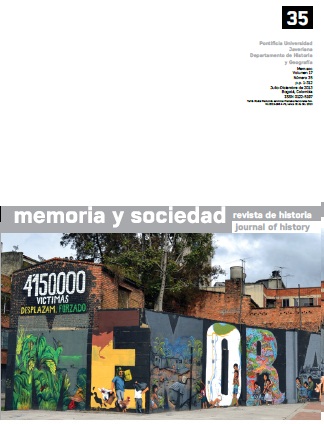Abstract
Historical memory has become a really relevant topic in Spanish media and politics, particularly since the adoption in the Congress of Deputies of the law 52 of 2007, "by which rights are recognized and extended and there are measures established to benefit those who suffered persecution or violence during the civil war and dictatorship. " In this study we reflect on how the media propose a public debate on Francoism and the Spanish transition. We used 32 focus groups and analyzed how the media historization of the dictatorship and its socio-political legacy is assimilated in the social discourses of the audience. That is how we examined the mediated memory, the one that is built on the collective process in which historical events are negotiated. We also found empirically eight types of ideal memories in Spain, those whose memories are influenced by the sociopolitical environment, the generation and the degree of politicization.The journal Memoria y Sociedad is registered under a Creative Commons Attribution 4.0 International Public License. Thus, this work may be reproduced, distributed, and publicly shared in digital format, as long as the names of the authors and Pontificia Universidad Javeriana are acknowledged. Others are allowed to quote, adapt, transform, auto-archive, republish, and create based on this material, for any purpose (even commercial ones), provided the authorship is duly acknowledged, a link to the original work is provided, and it is specified if changes have been made. Pontificia Universidad Javeriana does not hold the rights of published works and the authors are solely responsible for the contents of their works; they keep the moral, intellectual, privacy, and publicity rights.
Approving the intervention of the work (review, copy-editing, translation, layout) and the following outreach, are granted through an use license and not through an assignment of rights. This means the journal and Pontificia Universidad Javeriana cannot be held responsible for any ethical malpractice by the authors. As a consequence of the protection granted by the use license, the journal is not required to publish recantations or modify information already published, unless the errata stems from the editorial management process. Publishing contents in this journal does not generate royalties for contributors.

